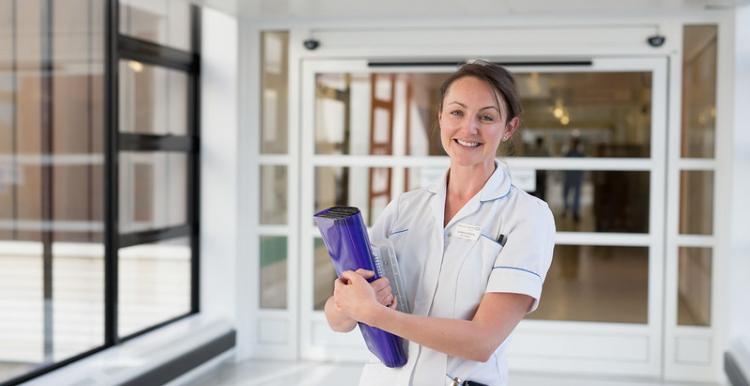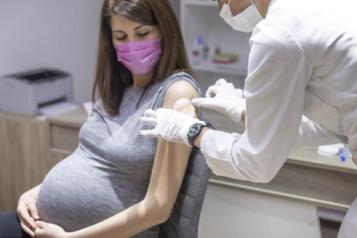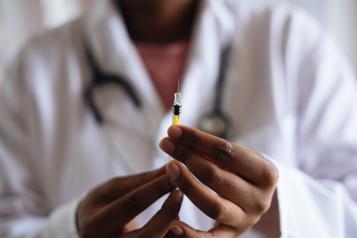Coronavirus (Covid-19) Vaccine

Who can get the COVID-19 vaccine
The NHS is currently offering the COVID-19 vaccine to people most at risk from coronavirus.
The vaccine is being offered in some hospitals and, from this week, hundreds of local vaccination centres run by GPs.
It's being given to:
- some people aged 80 and over who already have a hospital appointment in the next few weeks
- people who live or work in care homes
- health care workers at high risk
The vaccine will be offered more widely, and at other locations, as soon as possible.
The order in which people will be offered the vaccine is based on advice from the Joint Committee on Vaccination and Immunisation (JCVI).
Read the latest JCVI advice on priority groups for the COVID-19 vaccination on GOV.UK
Wait to be contacted
The NHS will let you know when it's your turn to have the vaccine. It's important not to contact the NHS for a vaccination before then.
Advice if you're of childbearing age, pregnant or breastfeeding
You should wait to have the COVID-19 vaccine:
- if you're pregnant – you should wait until you've had your baby
- if you're breastfeeding – you should wait until you've stopped breastfeeding
If you have the vaccine, you should not get pregnant for at least 2 months after having the 2nd dose.
If you later find out you were pregnant when you had the COVID-19 vaccine, do not worry. The vaccine cannot give you or your baby COVID-19.
There's no evidence it's unsafe if you’re pregnant or breastfeeding. But more evidence is needed before you can be offered the vaccine.
How the COVID-19 vaccine is given
The COVID-19 vaccine is given as an injection into your upper arm.
It's given as 2 doses, at least 21 days apart.
How safe is the COVID-19 vaccine?
The vaccine approved for use in the UK was developed by Pfizer/BioNTech.
It has met strict standards of safety, quality and effectiveness set out by the independent Medicines and Healthcare products Regulatory Agency (MHRA).
Any coronavirus vaccine that is approved must go through all the clinical trials and safety checks all other licensed medicines go through. The MHRA follows international standards of safety.
Other vaccines are being developed. They will only be available on the NHS once they have been thoroughly tested to make sure they are safe and effective.
So far, thousands of people have been given a COVID-19 vaccine and reports of serious side effects, such as allergic reactions, have been very rare. No long-term complications have been reported.
Read about the approved Pfizer/BioNTech vaccine for COVID-19 by MHRA on GOV.UK
How effective is the COVID-19 vaccine?
After having both doses of the vaccine most people will be protected against coronavirus.
It takes a few weeks after getting the 2nd dose for it to work.
There is a small chance you might still get coronavirus even if you have the vaccine.
This means it is important to:
- continue to follow social distancing guidance
- if you can, wear something that covers your nose and mouth in places where it's hard to stay away from other people
Information:
Read more about why vaccines are safe and important, including how they work and what they contain.
COVID-19 vaccine side effects
Most side effects are mild and should not last longer than a week, such as:
- a sore arm where the needle went in
- feeling tired
- a headache
- feeling achy
You can take painkillers, such as paracetamol, if you need to.
If you have a high temperature you may have coronavirus or another infection.
If your symptoms get worse or you are worried, call 111.
Allergic reactions
Tell staff before you are vaccinated if you have ever had a serious allergic reaction (anaphylaxis).
You should not have the vaccine if you've ever had a serious allergic reaction to medicines, vaccines or food.
If you do have a reaction to the vaccine, it usually happens in minutes. Staff giving the vaccine are trained to deal with allergic reactions and treat them immediately.
Read the latest COVID-19 vaccine advice if you have a history of allergies by MHRA on GOV.UK
Information:
You can report any suspected side effect using the Yellow Card safety scheme.
COVID-19 vaccine ingredients
The COVID-19 vaccine does not contain any animal products or egg.
Downloads
For more information, download these NHS leaflets:

